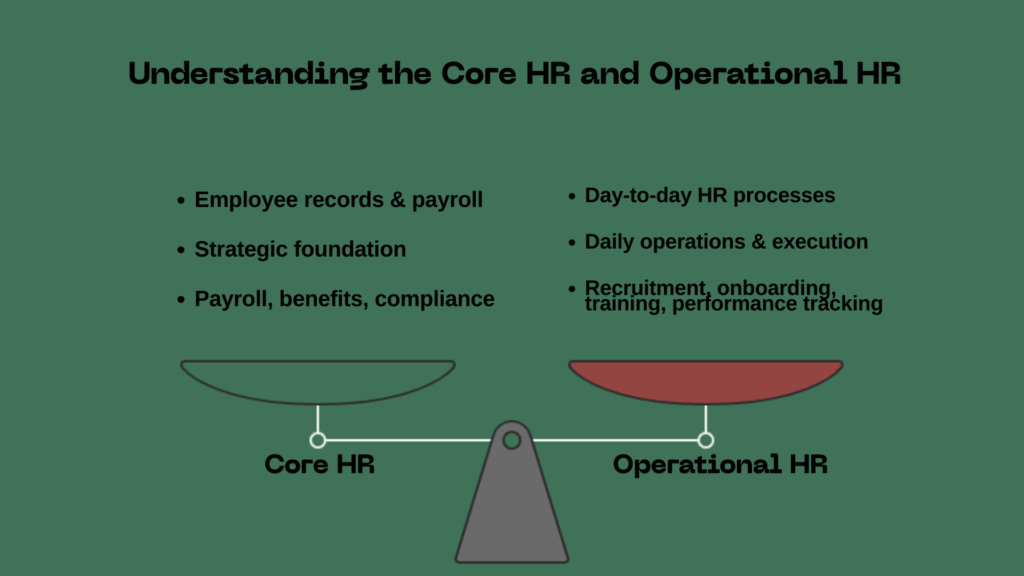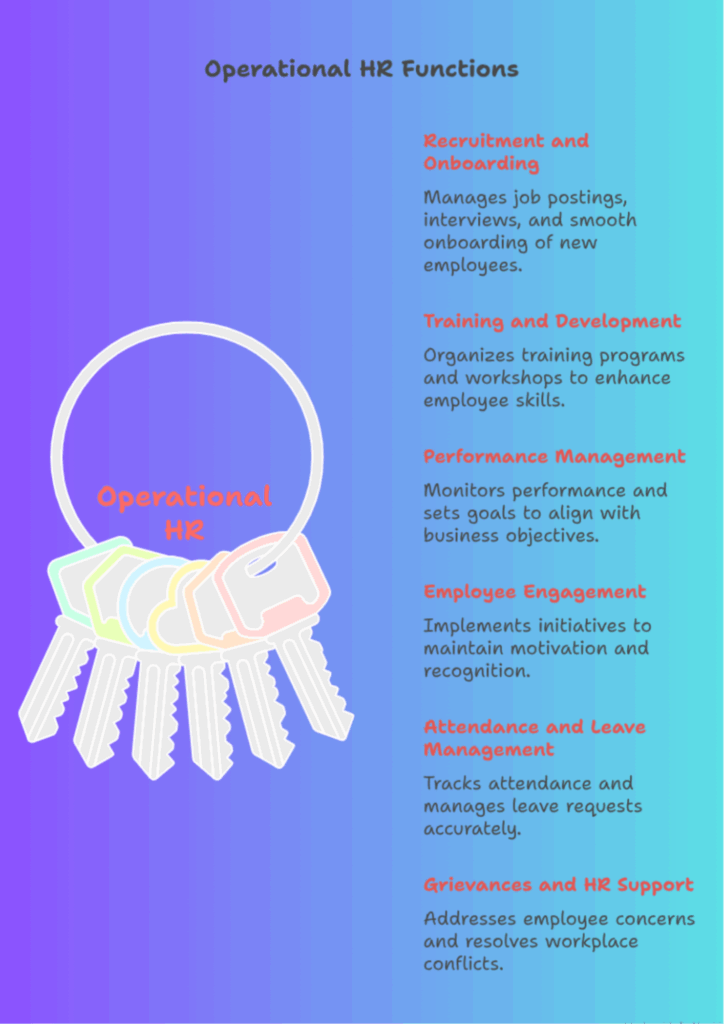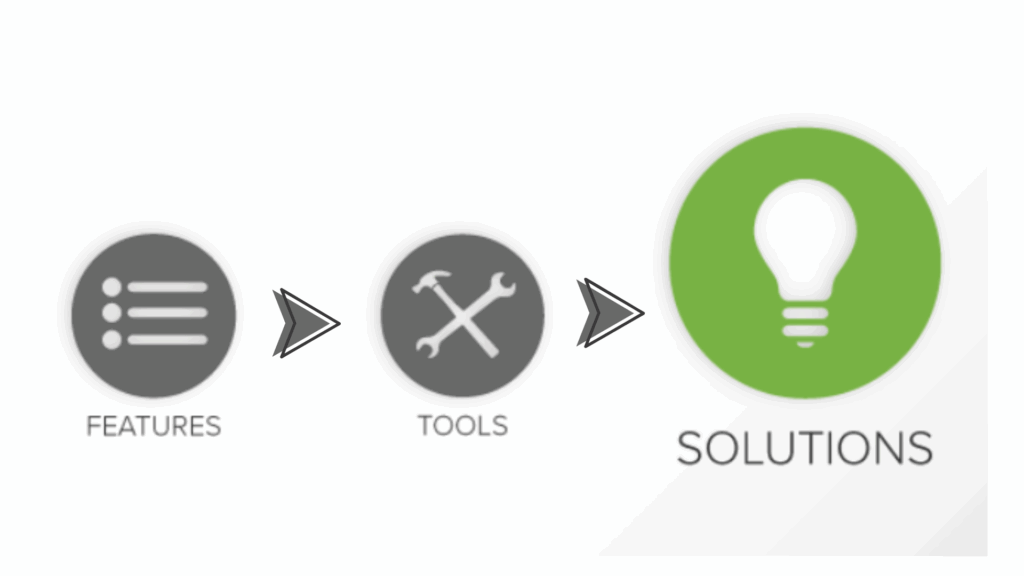1. Introduction
Operational HR is the part of human resources that focuses on managing day-to-day HR activities in an organization.
While Core HR handles foundational data like employee records, payroll, and compliance, Operational HR ensures that daily HR functions run smoothly.
This guide will break down the key functions of Operational HR, explain why it is essential for businesses, and highlight the benefits it brings to both HR teams and employees.

2. Difference Between Core HR and Operational HR and Operational HR
Many people confuse Core HR with Operational HR, but they serve different purposes.

Core HR is about managing the essential data and structure of HR, while Operational HR focuses on executing daily HR tasks efficiently.
| Aspect | Core HR | Operational HR |
| Focus | Employee records & payroll | Day-to-day HR processes |
| Scope | Strategic foundation | Daily operations & execution |
| Examples | Payroll, benefits, compliance | Recruitment, onboarding, training, performance tracking |
Core HR ensures a solid HR foundation, while Operational HR keeps daily HR activities flowing without interruptions.
3. Key Functions of Operational HR

Operational HR covers a wide range of functions that keep the HR department and employees aligned. These functions ensure that daily tasks are completed efficiently, employees remain engaged, and business operations are not interrupted.
Key functions include:
- Recruitment and onboarding: Operational HR manages job postings, applicant tracking, interviews, and ensures new employees are smoothly onboarded.
- Training and development: Organizes employee training programs, skill development workshops, and learning modules to improve performance.
- Performance management: Monitors employee performance, conducts appraisals, and sets goals to ensure alignment with business objectives.
- Employee engagement: Implements initiatives to maintain motivation, recognition programs, and feedback systems.
- Attendance and leave management: Tracks daily attendance, manages leave requests, and ensures accurate records.
- Handling grievances and HR support: Addresses employee concerns, resolves conflicts, and provides support for workplace issues.
These functions work together to ensure smooth HR operations and create a supportive environment for employees.
4. Why Operational HR is Important for Companies
Operational HR plays a crucial role in maintaining the day-to-day health of an organization’s workforce. Without it, HR teams can get bogged down by routine tasks, leading to inefficiency and employee dissatisfaction.
Operational HR ensures that HR processes do not create bottlenecks and employees receive timely support. It allows managers to focus on business goals rather than administrative work.
Benefits of Operational HR include:
- Smooth daily operations and minimized HR delays
- Improved employee satisfaction through timely communication and support
- Enhanced engagement and retention by addressing needs proactively
- Freeing managers from routine HR tasks to focus on strategic decisions
5. Tools and Features to Support Operational HR

To manage operational HR effectively, organizations use SystechiHR that streamline daily HR tasks. This software improves efficiency and provides real-time insights into workforce operations.
Important features include:
- Recruitment and applicant tracking system: Simplifies job postings, candidate tracking, and interview scheduling.
- Performance review tools: Automate employee evaluations and goal tracking.
- Employee self-service portals: Allow employees to access payslips, request leave, and update personal information.
- Attendance and leave management modules: Tracks daily attendance, manages leave requests, and generates accurate records.
- Learning and development tracking: Monitors employee training progress, skill acquisition, and certifications.
6. Common Challenges in Operational HR

Even with modern tools, operational HR can face challenges if processes are not properly managed. Common issues include:
- Manual processes and paperwork: Without automation, HR teams spend too much time on routine administrative tasks.
- Lack of real-time data and tracking: Inability to access live employee information slows decision-making.
- Inconsistent performance management: Without proper systems, appraisals and goal tracking can become irregular and biased.
- Low employee engagement: Neglecting daily support and recognition initiatives can reduce motivation and satisfaction.
Addressing these challenges with effective operational HR practices and digital tools ensures smoother operations and better employee outcomes.
7. Conclusion
Operational HR ensures that day-to-day HR processes run efficiently, supporting both employees and managers.
It keeps recruitment, onboarding, training, performance, and engagement activities organized and on track.
Implementing operational HR tools, such as SystechiHR, simplifies daily HR tasks and improves employee satisfaction.
Organizations that invest in operational HR experience smoother workflows, higher productivity, and a happier workforce.











